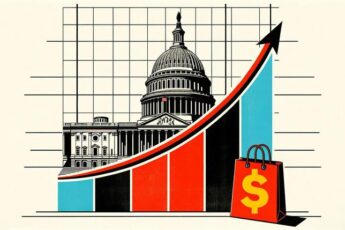As the nation gears up for this year’s elections, a crucial issue at the forefront is the fate of $6 trillion in taxes. The impending expiration of tax cuts after 2025 has prompted a sharp divergence in approaches from President Biden and Republicans, setting the stage for a heated debate on economic policies.
President Biden’s plan leans towards a progressive tax agenda, emphasizing fairness and addressing income inequality. Proposals include raising taxes on high-income earners and corporations, with the aim of funding social programs, infrastructure projects, and climate initiatives. The administration argues that this strategy will ensure a more equitable distribution of the tax burden and strengthen the social safety net.
On the other side of the aisle, Republicans advocate for a different path, emphasizing the importance of tax cuts to stimulate economic growth. Their approach centers on maintaining or even expanding existing tax relief measures to incentivize investment, job creation, and entrepreneurship. Republicans contend that lower taxes encourage business expansion, leading to increased employment opportunities and economic prosperity for all.
The heart of the matter lies in the expiration of tax cuts enacted during the Trump administration, which are scheduled to revert to pre-2018 rates starting in 2026. This expiration has significant implications, as it could result in a substantial increase in taxes for individuals and businesses across the income spectrum.
Biden’s proposed reforms target the upper echelons of income, seeking to fund an ambitious domestic agenda. The administration argues that by ensuring the wealthiest Americans and corporations pay their fair share, the government can invest in critical areas such as education, healthcare, and environmental sustainability.
Conversely, Republicans assert that lowering taxes for businesses and high-income earners fosters economic growth and job creation. They argue that an increase in taxes could stifle innovation, deter investment, and ultimately hinder the nation’s economic recovery.
The debate over the fate of these $6 trillion in taxes is not just a battle of economic philosophies but also a reflection of the broader ideological divide in American politics. As voters head to the polls, they will face a choice between two distinct visions for the nation’s fiscal future.
The outcome of this election will shape the trajectory of tax policy for years to come, influencing the economic landscape and the financial well-being of individuals and businesses alike. Whether the nation will opt for a more progressive tax system or maintain a focus on tax cuts to spur economic growth remains a pivotal question that voters will determine at the ballot box.






